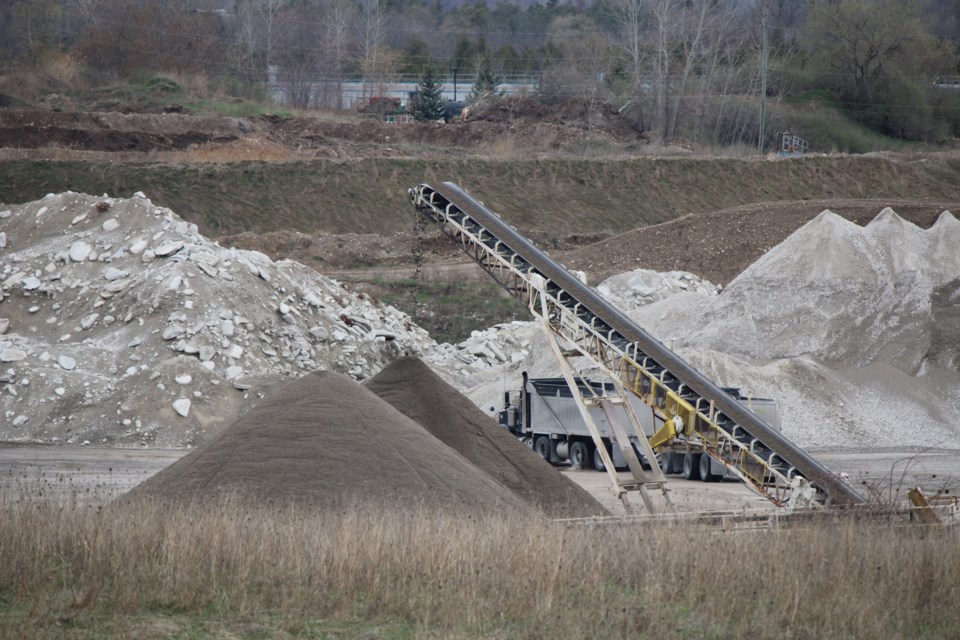GUELPH/ERAMOSA – Guelph/Eramosa council unanimously endorsed the call for a moratorium on new gravel mining licenses in Ontario earlier this week.
The proposed moratorium, or a temporary pause, of all new aggregate operations comes from the Reform Gravel Mining Coalition (RGMC). They want an independent third-party study of aggregate reserves conducted to look at the provincial policies surrounding the gravel industry.
According to a report from RGMC sent to municipalities, the provincial government allows the gravel mining industry to consume on average an additional 5,000 acres of land each year and gravel mining "destroys the existing environment" and "damages communities" — while paying less property tax than some single families do.
RGMC is asking local municipalities to endorse the moratorium so that the province can put a pause on all new gravel pit licenses, approvals and amendments.
Doug Tripp, a representative of RGMC, local resident Quentin Johnson and Stephanie De Grandis of Walnut Hill and Critter Farm spoke as delegates at Tuesday's meeting.
“This independent study is an urgent priority as there is a finite amount of gravel reserves in Ontario, and gravel is a vital resource which needs to be carefully managed,” said Doug Tripp of the RGMC when he spoke as a delegate at the council meeting.
“Municipalities such as Guelph/Eramosa are caught in the middle of a very difficult situation such that many communities now have come forward in view of the campaign we’ve launched to express their concerns. Municipalities’ ability to manage this environmentally and socially intrusive industry are increasingly hampered and reduced.”
Guelph/Eramosa council along with Puslinch Township have endorsed the moratorium. Neighbouring municipalities such as Melancthon, Woolwich, Milton, Cambridge, Peel Region, Halton Hills, Zorra, North Shore, and Wilmot have also supported it.
Council further adopted a resolution that not only includes the moratorium, but also the elimination of property tax loopholes and assesses the properties at their true market value; a fair levy of the full environmental and infrastructure maintenance costs; a new criteria and process for determining the need for new gravel licenses as well as update the policies around groundwater usage.
“One of the things that made it easy for me was the tax assessment piece of this. The system is broken down into many levels but this one is glaring,"said Mayor Chris White during the meeting.
"There was a presentation that county treasurer Ken DeHart did in 2021 where he pointed out an example where a food processing plant, which was a 99.5 acres site, was paying about $195 a year in property taxes. An aggregate pit which had a similar size in the vicinity paid $13,000. In some cases, you could have a 100-acre farm and the guy living on a one-acre bungalow pays more tax. There are issues with that.”
White noted the county is further pursuing this issue.



